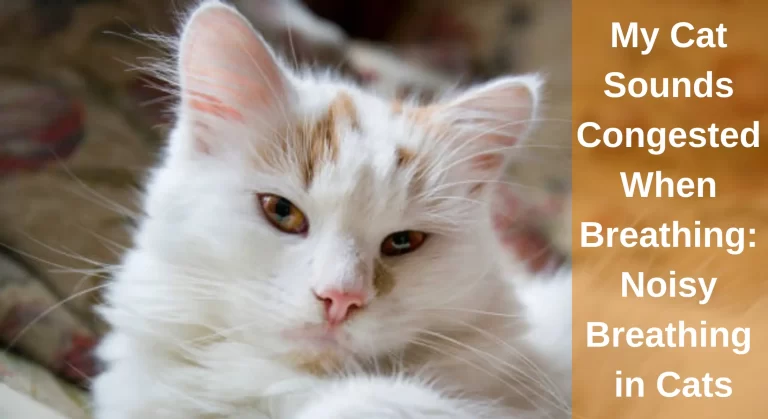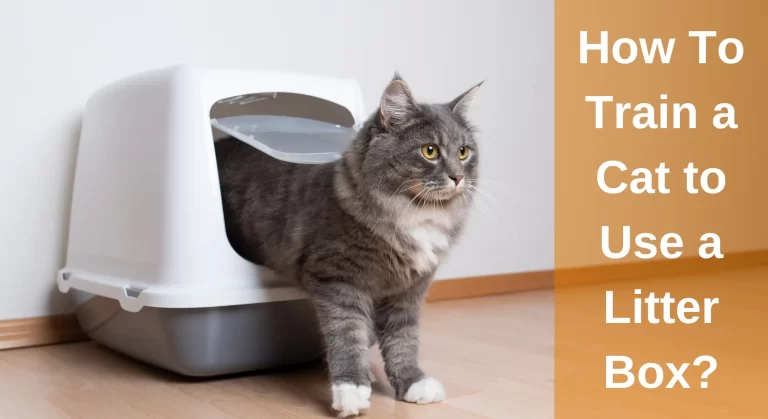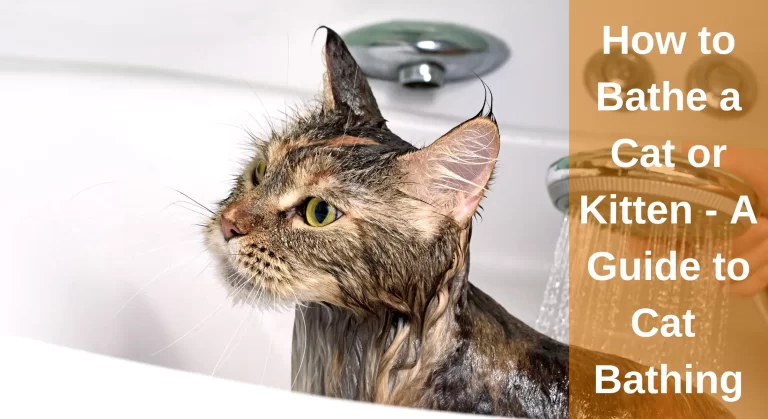When Can Kittens Leave Their Mom? Timeline for Weaning Kittens
Did your cat just give birth to a litter of kittens? Or did you find one on the streets and wonder if you should bring it home? It is important for a kitten to spend the first several weeks with its mother. Unfortunately, unaware of this knowledge, many cat breeders sell their kittens for adoption too soon. When Can Kittens Leave Their Mom?
Kittens should stay with their mom until they are 12-14 weeks old. At 8 weeks old, they stop drinking their mom’s milk (weaned), but they still need to learn how to eat solid food, use the litter box, handle their grooming, and interact with other cats and people. If you separate them too early, they might have health and behavior problems, like being shy or aggressive. So, it’s essential to allow them to stay with their mother for at least this duration (8-12 weeks) to ensure proper development and socialization before taking them home for their well-being.
In this article, we will explore the significance of mother-kitten bonding, the weaning process, the initial stages of a cat’s life, its development, and the appropriate age for kittens to leave their mother. So, let’s dive into this adorable world of feline parenthood!

When Can Kittens Leave Their Mom? Timeline for Weaning Kittens
Kittens should not be adopted before the age of 12 weeks as they need these first several weeks with their mother. During this period, kittens are reliant on their mother. The following are the developmental stages of a kitten:
0-4 Weeks The First Weeks of Life
This is known as the neonatal stage of kittens. Their survival depends entirely on their mother at this point in their development. Newborn kittens cannot open their eyes for the first week of life. They need mom to keep warm, as they cannot regulate their body temperature. They are also exclusively on their mother’s milk and must be fed every two hours.
They need help with defecation and micturition, so their mother licks their genitals to stimulate them to poop and pee. Their mother also constantly cleans them, as kittens are most vulnerable to disease in this stage of their lives.
Between the first and second weeks, kittens begin to double their birth weight. This rapid growth is a testament to the nutritious milk provided by the mother. While their eyes remain closed, they start to sense the world through smell and touch.
Kittens start teething in the second half of the first month of their lives. It’s a good idea to buy them teething toys, as teeth erupting from their gums can cause soreness and pain.
Find Out: Why Does My Cat Keep Moving Her Kittens?
4-8 Weeks Introduction to Solid Food
During the second month of their life, kittens are more energetic and inquisitive. They rely on their mother less for survival and more for learning the basic skills of life. This is also when they wean off their mother and start taking solid foods, they are not fully weaned yet and will continue to nurse occasionally. Their mother will teach them how to use the litter box, for which you will need to arrange a low-entry, shallow container.
They are trained to hunt, which, although not necessary for domestic cats, is still an intrinsic part of their primitive nature. Their mother will hiss or growl at things they are not supposed to eat, teaching them to stay away from non-edible and potentially dangerous items.
Lastly, their mother teaches them how to communicate, as cats are dominating creatures, so this skill is vital for them to move into adulthood.
At seven to eight weeks old, kittens are close to being weaned completely. They should be consuming mostly solid food, and their mother’s milk supply will naturally decrease.
8 Weak Weaned
At this stage, cat breeders think it’s okay to give away or sell a kitten. Kittens at this age can feed themselves, clean themselves, use the litter box, and are generally very playful and energetic. However, an extra month with their mother is vital for them to have a healthier, well-rounded life.
9-12 Weeks – Developing Independence
As kittens reach nine to ten weeks old, they become more adventurous and curious about their environment. They will spend more time exploring, playing, and socializing with their littermates.
During this stage, kittens continue to develop essential social and behavioral skills. They learn to interact with other cats and humans, shaping their personalities.
Find Out: Why Do Mother Cats Attack Their Older Kittens?
13-15 Weeks Ready to Leave Their Mom
At around thirteen to fourteen weeks old, kittens are usually ready to leave their mother and go to their forever homes. By this age, they are independent enough to eat solid food, use the litter box, and handle their grooming.
As a responsible pet owner, it’s vital to ensure that the kittens go to loving and caring homes. Screen potential adopters carefully to guarantee their well-being and happiness.
Also Read: Where Should Kittens Sleep at Night? – First Night
What Happens When a Kitten Is Removed From Its Mother Too Soon? Why Is It Important Kittens Stay With Their Mom?
If a kitten is removed from its mother too soon, it makes them vulnerable to illnesses, as its mother’s milk helps them develop a robust immune system. It also changes the way they see the world, so they develop behavioral issues, such as:
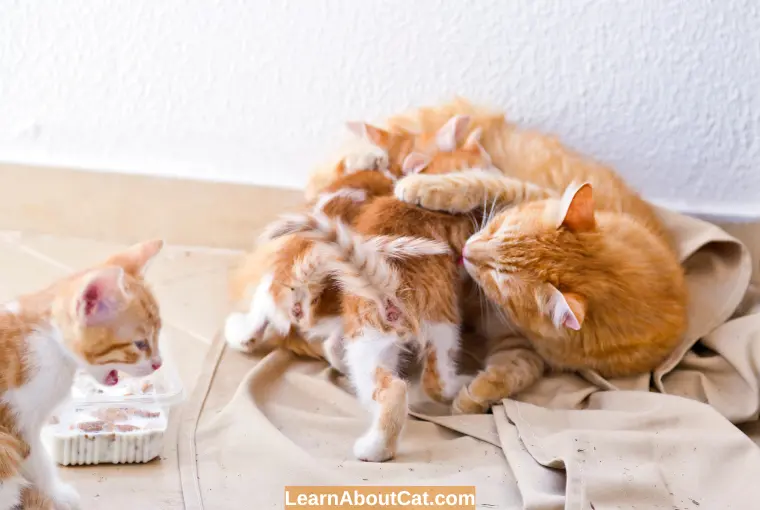
1. Aggressiveness
Cats have a primitive, wild nature. They have developed timid behavior due to domestication, where they have learned not to hurt their owners or other pets with their claws or teeth. This altered behavior is taught to kittens by their mother.
While roughhousing with each other, kittens learn how to play without hurting each other. Without this training, they simply did not receive this grooming. Hissing and lashing out are normal because they perceive their new surroundings as dangerous.
2. Fear
When kittens are young, they explore the world around them, knowing their mom has their back. This gives them a sense of confidence. They observe the way their mom is around humans and register that their owner is safe.
Without this crucial time with their mother, your cat might develop a sense of constant fear and anxiety. New people will scare of it easily, and adjusting to a new environment will take longer. It might not even warm up with you quickly. It takes increased patience and time for your pet to adapt to you and realize you will not hurt it.
3. Weak Immune System
Kittens need their mother’s milk for ideal growth and development. The ones that do not receive enough mother’s milk will have an underdeveloped immune system.
This leads them to be more prone to frequent infections and diminished growth. It can also lead them to develop structural diseases like arthritis later in life.
4. Adjustment Problems
Kittens who have separated from their mother too early might have difficulties with cat-related behaviors. They watch their mothers and pick up the skill of using a litter box from them.
They also learn to groom themselves from mom, so both of these things are affected, and your new pet may have a problem doing both.
How Long Should a Kitten Stay With Its Mother? What Age Can Kittens Leave Their Mother?
It is commonly known that a kitten can be separated from its mom at the age of 8 weeks. However, this is far from the truth. Kittens need the first three months of their lives with their mother, which is 12 weeks. This ensures they become well-rounded, healthy cats.
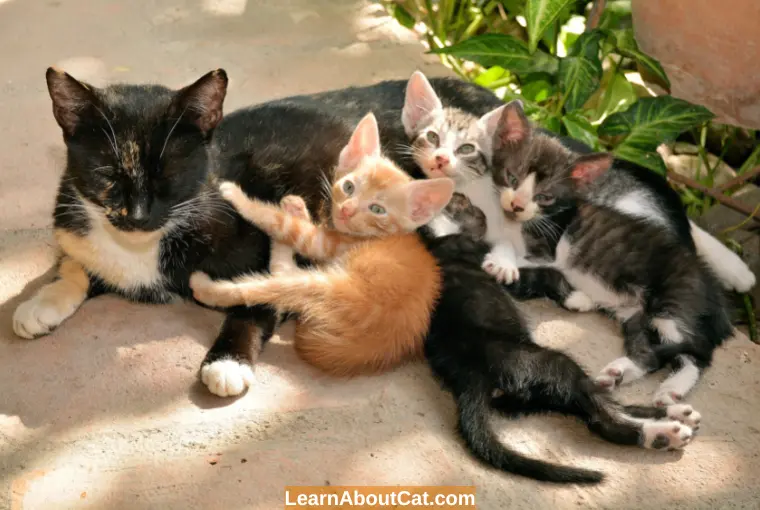
Transitioning to a New Home
When the time comes to bring your new furry friend home, it’s essential to create a warm and safe environment for them. Prepare a cozy bed, a designated area for eating, and a litter box, and ensure that the home is free from any potential hazards. Gradually introduce your kitten to the new surroundings and provide plenty of love and attention to help them feel secure and comfortable.
The Best Age for Adoption: Pros and Cons
Adopting at Eight Weeks: A Balanced Approach
Adopting a kitten at eight weeks old strikes a balance between ensuring they are emotionally ready and forming a strong bond with their new family. By this age, they have acquired crucial social skills from their mother and littermates, making the transition to a new home smoother.
Adopting at Ten Weeks: Extra Socialization Time
Choosing to adopt at ten weeks allows for additional socialization and learning from the mother and siblings. The extra time with the litter helps the kittens become more confident and adaptable, reducing the likelihood of behavioral issues later on.
Adopting at Twelve Weeks: Maximum Development
At twelve weeks, kittens have reached a more advanced stage of development. They are better at coping with changes and adjusting to new environments. However, adopting at this age may mean missing out on some of the adorable early kitten moments.
Check Out: When Do Kittens Start Eating Food And Drinking Water?
What to Do if Your Kitten Was Separated Early From Its Mother?
If you have found an abandoned kitten, fear not. While the task seems daunting, with a little patience and a lot of care, you can successfully give this little creature a chance at life. In accordance with the age of the kitten, you should provide different amounts of care.

If Your Kitten is 0-4 Weeks Old
If your kitten is 0-4 weeks old, it needs you for everything. You need to arrange a kitten milk replacer, ensure it is warm to the touch, and feed it to your tiny pet every two hours, even through the night. Then, after every feed, use tissue paper or a cotton ball and gently rub its genitals so it may pee and poop.
- Make sure to keep it warm, as kittens cannot maintain their body temperature. You will need towels, a shoe box, and a hot water bottle or heating pad. Kittens of this age only wake up to eat, pee, and poop; they sleep the rest of the time. If you make it past this stage, give yourself a pat on the back. This stage is the one that requires the most effort and care.
If You Have a Kitten From 4-8 Weeks Old
If you have a kitten from 4-8 weeks old, you will need to transition it to solid food. Start with wet canned food mixed with kitten milk replacer(KMR), as dry kibble is too hard for their baby teeth.
Decrease the amount of KMR once they get used to canned food. At 6 weeks, you can transition to soft dry cat food to ultimately get them to eat dry kibble.
Interesting Reading: Do Kittens Need Wet Food?
Litter Train Your New Pet
You will need to litter train your new pet. You can start as early as three weeks when you see your baby pet defecating on its own without any stimulation. Arrange a litter tray with short walls, or cut out the base of a box during litter training.
Buy unscented paper-based litter, as kittens put everything in their mouths. You can stimulate your kitten on top of the litter box.
Once it pees or poops into the litter box, it will associate the urine smell with its place to pee. Keep the box nearby, not more than 10 feet from your kitten, so they can easily find it.
Develops Social Skills
You must play with your kitten frequently so that it develops social skills. This also develops a bond between you and your pet. Take your kitten out in your garden to explore new things and build its hunting instincts.
Also, Check Out: My Kitten is Weak And Sleepy How to Care for a Sick Kitten?
Frequently Asked Questions
Can kittens stay with their moms their whole lives?
Yes, kittens can live with their mother in the same house until they are adults. However, don’t count on her to always act in a maternal manner. The kitten will become an independent cat once it has been completely weaned. At that point, its mom will gradually stop providing motherly care.
The ideal age to adopt a kitten cat was separated early from its mother
The ideal age to adopt a kitten is twelve weeks old. Before this age, kittens need their mother.
What should I feed my kitten during the weaning process?
During the weaning process, you should feed your kitten soft, moistened kitten food. This helps them transition from their mother’s milk to solid food. You can offer a specially formulated kitten food that provides the necessary nutrients for their growth and development. Make sure fresh water is always available for them to drink alongside the softened food.
When can I start litter training my kitten?
You can start litter training your kitten around four weeks of age. At this stage, they begin to develop control over their bladder and bowels, making it easier for them to learn to use the litter box. Provide a low-sided litter box with unscented, clumping litter, and place the kitten inside after meals and naps to encourage proper litter box habits. Positive reinforcement and patience are key to successful litter training.
What can I do if the mother cat rejects her kittens?
If the mother cat rejects her kittens, you may need to step in and provide care for the kittens yourself. Ensure the kittens are kept warm and fed with a suitable kitten milk replacement formula. Consult a veterinarian for guidance on proper care and feeding schedules. Additionally, monitor the kittens closely to address any health issues and seek professional advice if necessary.
Conclusion
Kittens should not be separated from their mother before the age of twelve weeks. They have plenty of time to develop into strong, self-assured, and independent cats that know exactly how to use the litter box, take care of themselves, and engage in play and hunting. Additionally, they have improved their human and animal interaction skills.
If you’ve found an orphan kitten or adopted one before they’re ready. You’ll need to offer them a little more love and attention, but with enough effort, you can give them the same level of attention their mother does. Your kittens ought to be content, healthy, and thriving in no time!
Who is Isabella?
My name is Isabella, and I am a dedicated and knowledgeable cat enthusiast. With years of experience caring for cats and a deep love for felines, I made a mission to help other cat lovers navigate the challenges of cat ownership.

